Smarter, Faster, Fairer: Insights on the Future Grid from Innovation Zero World
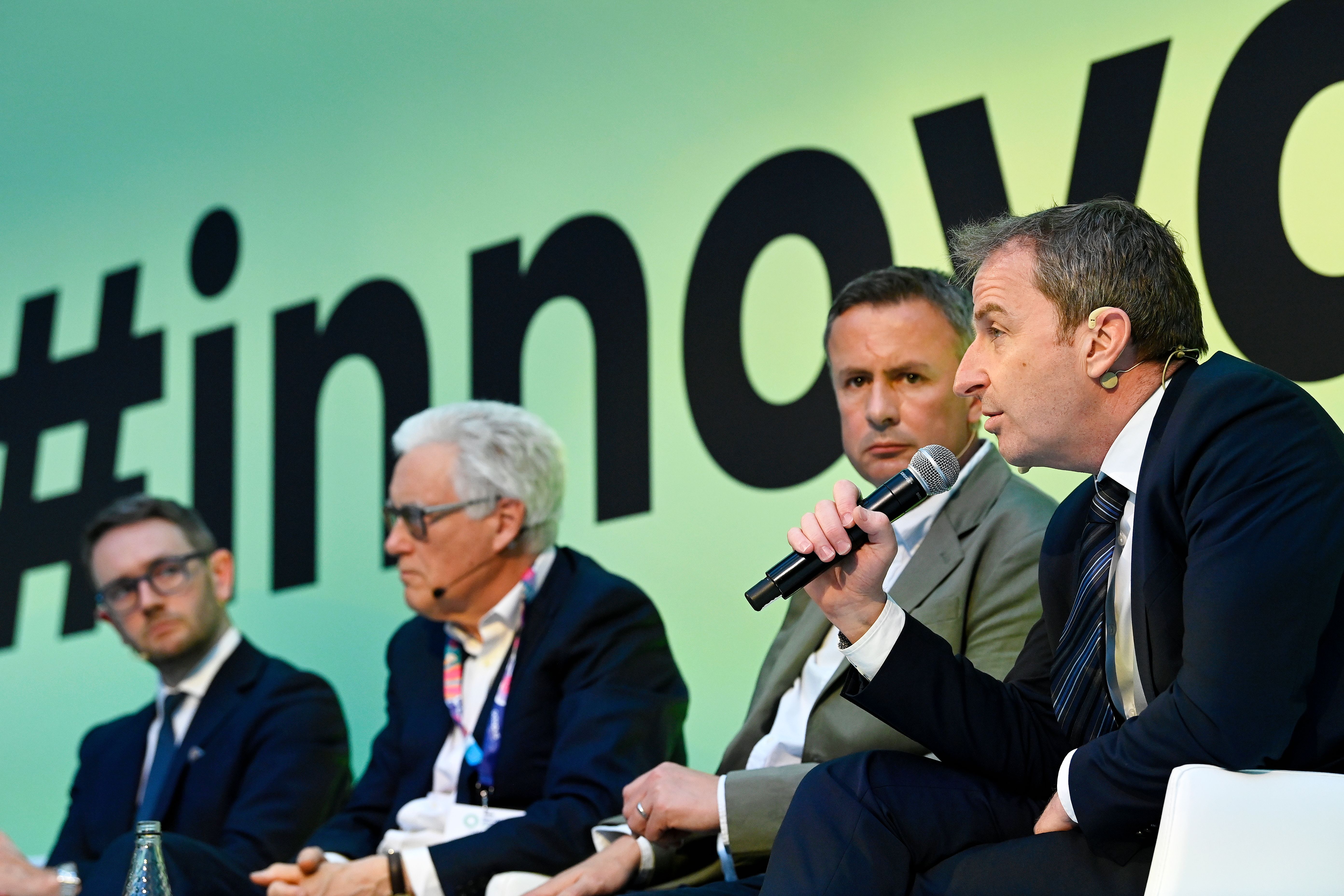
Stephen Smith from National Grid, speaking alongside Chris Stark CBE, DESNZ; Lord Adair Turner, Energy Transitions Commission, and Chris Norbury, E.ON Next
With the UK's ambitious CP2030 target just 5 years away, the future grid was a hot topic at this year's Innovation Zero. The need for rapid growth and modernisation was explored across multiple Forums, from the perspective of utilities, system operators, policy makers, consumers, technology developers and investors.
( 🧠 We also hosted an invite-only working group delving into flexible, consumer focused grids- more on this soon!)
From attending many of these sessions, one message came through loud and clear: if the future grid is to be fit for purpose it must be flexible, consumer-driven, and take a whole systems approach to planning, investment and data sharing.
I explore my key takeaways below.
🔋 Flexibility must be plug-and-play
Multiple speakers echoed a common imperative: flexibility is the foundation of a modern, resilient energy system. But unlocking flexibility at scale requires new ways of building infrastructure, engaging customers and designing market incentives.
A flexible grid only works if people can actually use it. That means moving beyond engaged and tech-savvy early adopters to embed flexibility into everyday routines.
Speakers from Citizens Advice Bureau, E.ON, the National Audit Office and Carbon Trust urged the sector to:
- Simplify smart tariffs and automate participation.
- Establish minimum standards to make flexibility a default, not a niche.
- Develop programs tailored to property types and lifestyles- not just those with the time or resources to engage.
Time-of-use tariffs, gamified programs, and automation platforms are emerging, but must scale fast- especially for the 1 million UK SMEs currently underserved in energy markets.
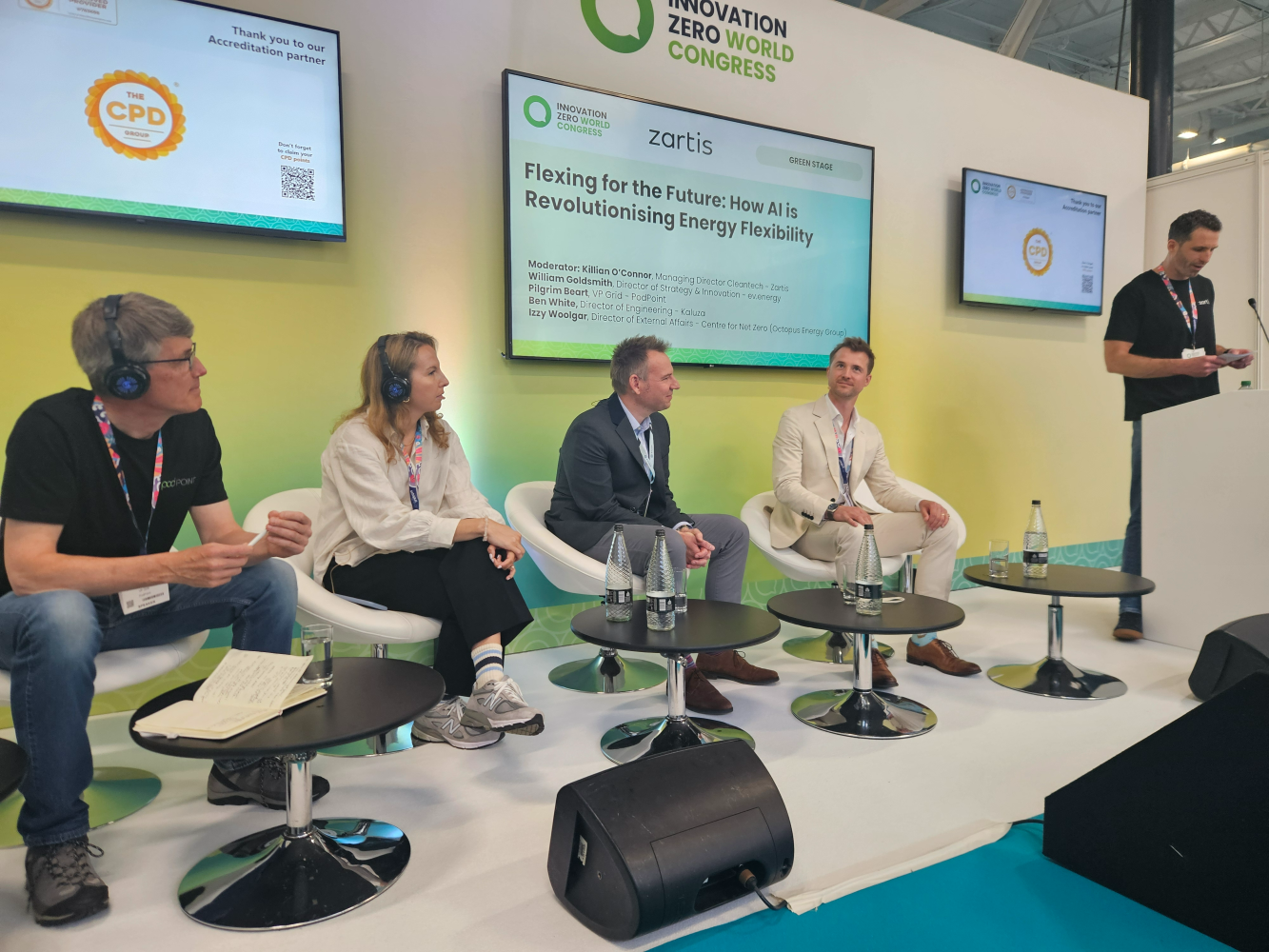
Talking AI and Flex with Pilgrim Beart, PodPoint; Izzy Woolgar, Centre for Net Zero; Ben White, Kaluza; William Goldsmith, ev.energy; and Killian Connor, Zartis
💷 “Flexsumers” need transparency and value to build trust
As populist narratives threaten to politicise the energy transition, building consumer trust is of key importance as a frontline defence.
If domestic flexibility is to help deliver the projected £10bn in annual savings to the energy system by 2050, then consumers must be able to see, trust, and benefit from the value they provide to the system.
Speakers including those from the Energy Saving Trust, tem.energy, Kaluza and the Energy Transitions Commission highlighted that this requires:
- Transparent reward structures that pass value back to households and small actors.
- Support for consumers to engage on their terms, without wading through market complexity.
- Stronger consumer protection as innovation pushes into new retail territory.
- Applications designed to deliver long-term, meaningful value over their lifetime.
AI tools can help make this a reality, but must be matched to the right jobs, with clear rules on who makes decisions and how.
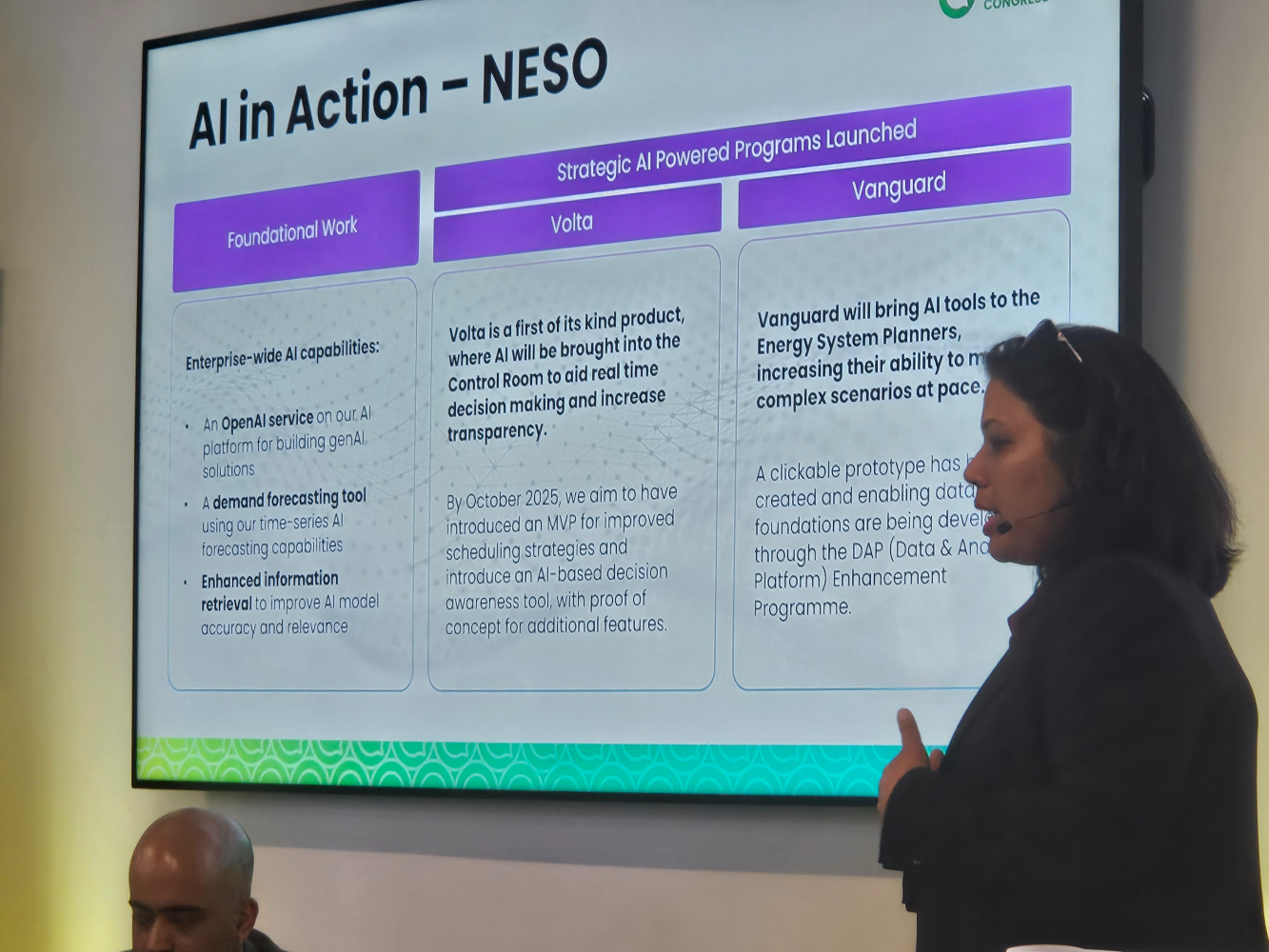
Sangeeta Agrawal from NESO outlining Volta and Vanguard programmes
🤖 AI: a strategic tool for rapid, coordinated growth & operation
AI is set to reshape grid planning and operations. Sangeeta Agrawal from the National Energy System Operator (NESO) outlined how the organisation is already leveraging AI, with ambitions to champion and accelerate applications across the UK energy system.
- Sam Mathew from Microsoft, one of NESO's technology partners, highlighted the potential of AI tools to combine decades of siloed data- as has happened with nuclear siting permits- opening new, turbo charged opportunities for whole system alignment.
- Volta and Vanguard programmes have already been launched, improving real time decision making and systems planning respectively.
- NESO ultimately aims to be the world’s first AI-native system operator, democratising insights and setting the pace for digital grid transformation worldwide.
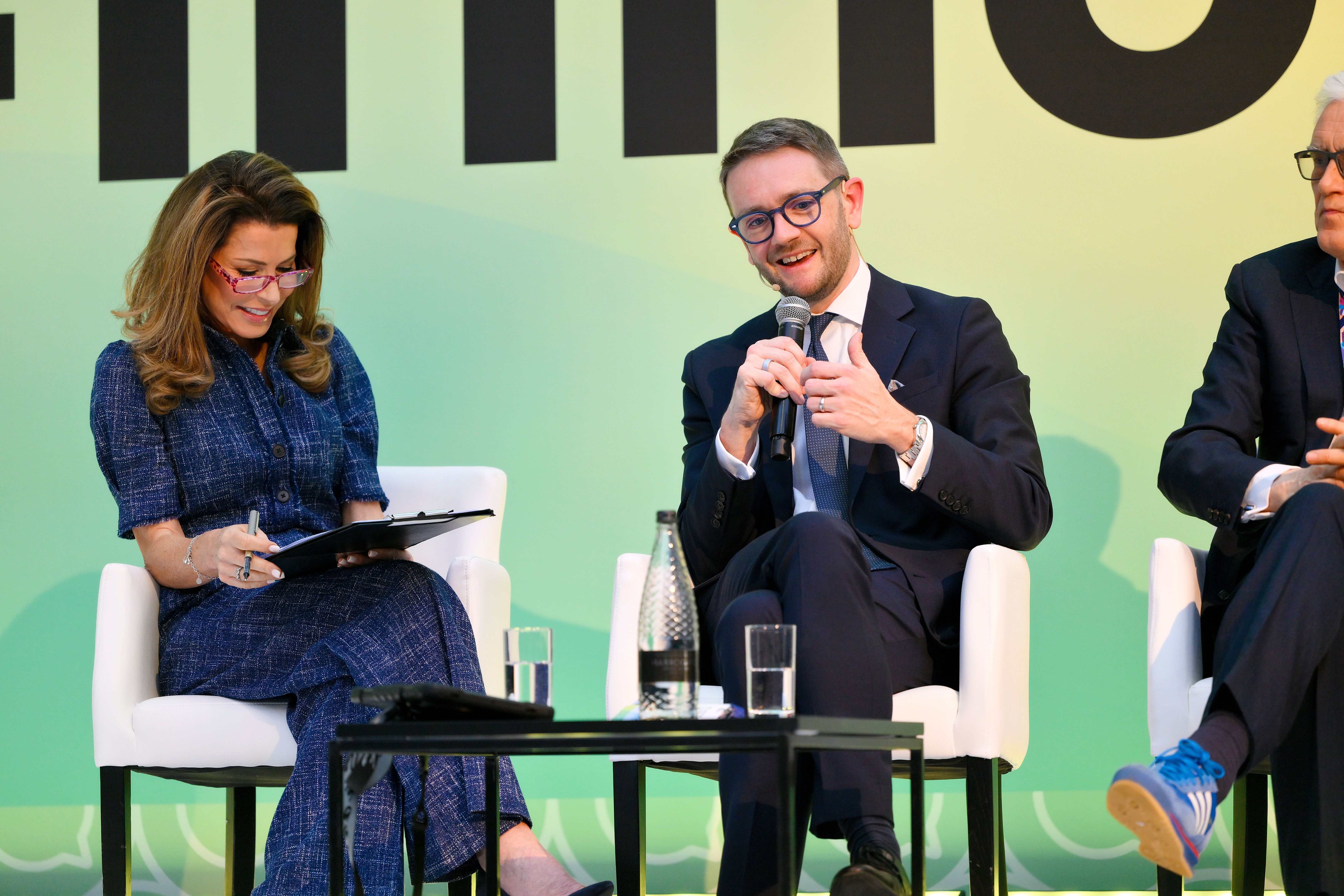
Chris Stark CBE, Head of Mission Control, with Natasha Kaplinsky OBE
⚡ Grid infrastructure: the enabler and bottleneck
Flexibility won’t deliver without grid capacity to match. National Grid is investing £30 billion over 7 years, highlighted by their Chief Strategy and Regulation Officer Stephen Smith as a 'once-in-70-years buildout'.
But with it currently taking nearly a decade to build a new transmission line, clear bottlenecks remain.
The UK needs to transition from reactive upgrades to proactive, strategic grid development that unlocks the low carbon projects already waiting in the wings, while also paving the way for new.
Speakers from DESNZ, National Grid and Arup called for:
- Cutting build times from 10 to 3–4 years through planning reform and early coordination.
- Reforming grid connection queues so shovel-ready projects can plug in faster- Chris Stark's Mission Control at DESNZ is already undertaking this.
- Integrated planning across local authorities, developers, and regulators.

Cross-sector speakers exploring the whole system challenge with Professor Paul Monks, DESNZ
🕸️ Mainstreaming whole-system thinking
Finally, a recurring theme was the need to step outside of silos between power, heat, transport; public and private; and local and national.
Whether it’s enabling distributed solar, connecting African grids, or creating standardised contracts for flexibility services- stakeholders including Arup, HSBC and Quinbrook Industrial Partners highlighted the need for:
- Coordinated portfolios that balance high-return with subsidised assets.
- Clear investment signals for private capital to flow into early-stage infrastructure.
- Transparent, open data systems that enable trust and interoperability between different technology providers.
Leadership matters here- across government, regulators, and industry. So does humility.
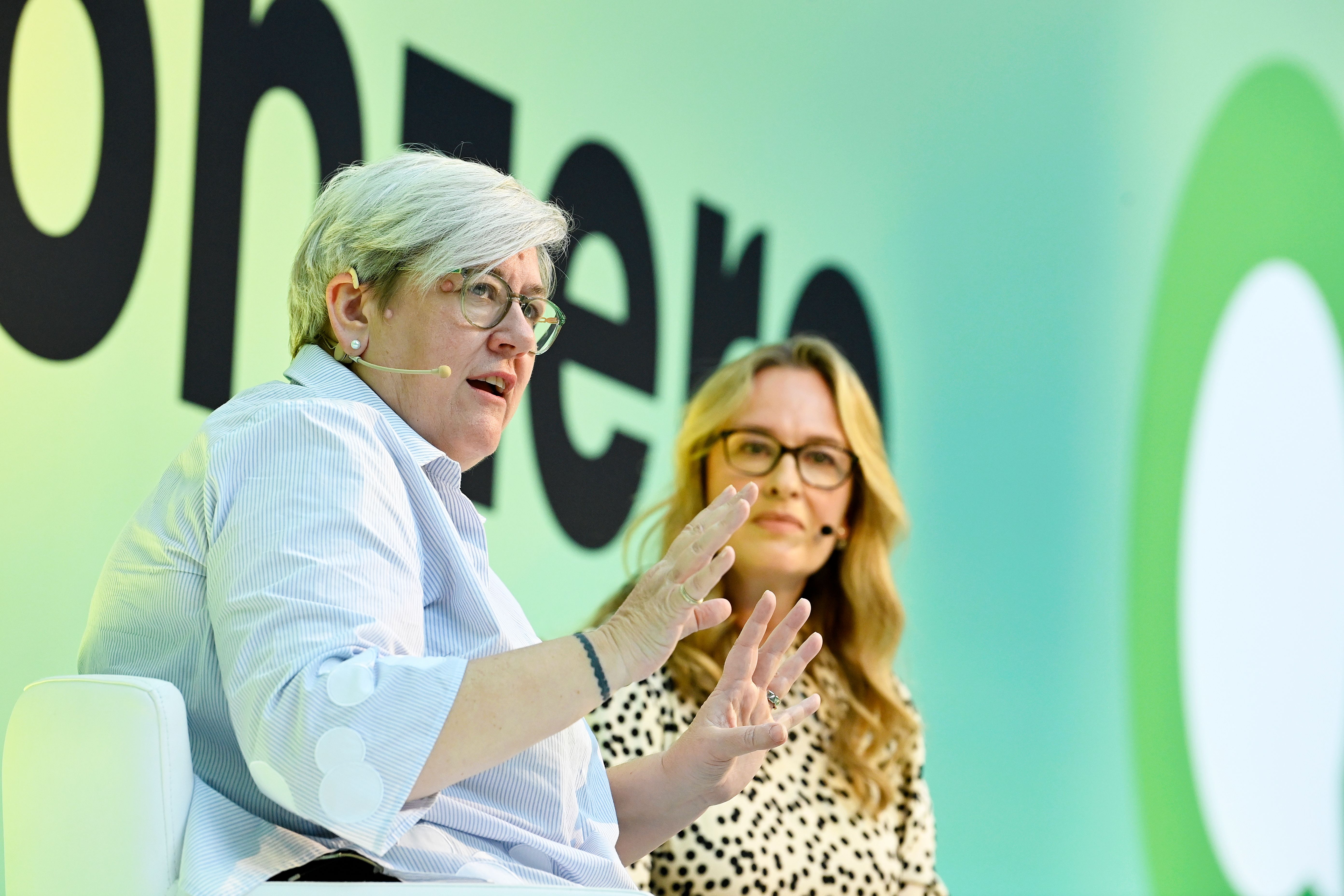
Rachel Kyte speaking with conference Chair Rhian-Mari Thomas OBE, Green Finance Initiative
In her opening address, Rachel Kyte highlighted that the energy transition is likely to happen in leaps- which we should embrace rapid change and then consolidate progress.
If the UK is able to capitalise on forging these new pathways, this not only presents the opportunity to deliver world-leading national climate targets but to export our expertise to those grappling with the energy transition globally.
Over 2 days, Innovation Zero started to reveal the contours of the future grid- one that is intelligent, people-powered and deeply interconnected.
The challenge now is execution at the speed and scale required of our climate targets- and building the coalitions that can turn these insights into action.
I look forward to working with Innovation Zero to contribute towards this mission!


